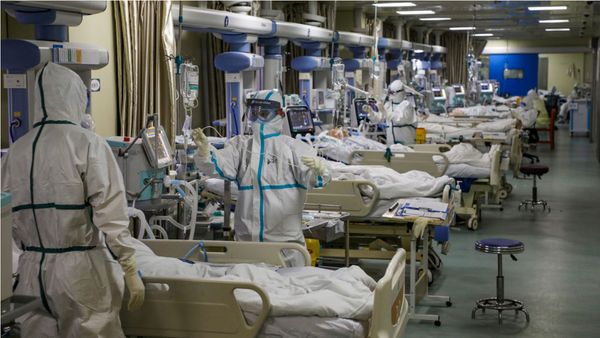One plate of a roast dinner can contain more than 230,000 microplastics, a study has found.
Eating the traditional meal every day - or similar - with items bought wrapped in plastic could equate to eating two plastic bags each year.
The University of Portsmouth, in partnership with ITV 's Good Morning Britain, carried out the research ahead of the Christmas season, as many families sit down to enjoy the nation's favourite dish.
GMB reporter Michelle Morrison, alongside her nine-year-old daughter and six-year-old son, made two separate roast dinners at home with the same ingredients - chicken, potatoes, carrots, broccoli and Yorkshire pudding.
However, one meal was made with ingredients that had all been bought wrapped in plastic and the other used loose items.
The roast made from ingredients wrapped in plastic contained seven times more microplastics than the non-wrapped one, showing that plastic packaging is a major route for the material getting into our bodies.

In addition, the non-packaged items cost 37% less than those bought wrapped.
Dr Fay Couceiro, reader in Environmental Pollution at the University of Portsmouth, tested both roast dinners,
She said: “From the results it would appear that the majority of microplastics in our food come from the plastic packaging it is wrapped in.
"However, there are other ways that plastic can enter the food chain.
"It could be getting into the vegetables through the soil or into our meat through grazing.
"Air has lots of microplastics in it too, so they could be falling on top of the food and finally it could be from the cooking utensils used when preparing a meal.”

She added: “Usually food samples are analysed for microplastics in their raw state under laboratory conditions.
"This allows us to understand how much plastic is inside a particular type of food.
"This study differs because we chose to look at what was actually on your plate after the food had been cooked.
"Instead of a sterile laboratory, the food was cooked in a normal kitchen, so it is likely the microplastics will come from a combination of within the food, the packaging, cooking utensils and the air.”
GMB reporter Michelle Morrison added: “Previously there has been very little research into the amount of microplastics contained within an entire meal.

"Our new investigation has clearly found that we eat far less microplastics when we reduce the amount of packaging we buy.
“What we now need to know is, are these microplastics harmless or, like many believe, are they actually tiny plastic timebombs?”
Professor Shaji Sebastian, consultant gastroenterologist at Hull University Teaching Hospital, said: “The key is to understand, what are microplastics doing to the body? Do they go to the organs? Do they cross the barrier between the blood and the brain?
"If it is launched in the intestine, which is my area of interest, is it going to stimulate some problems or inflammation which may lead on to disease down the line? These are critical questions, which we need to answer.
“The results of this investigation are surprising and make research into the impacts of microplastics on the human body all the more urgent.”
Alberto Costa MP, chair of the All-Party Parliamentary Group on Microplastics said: “I very much welcome this research by the University of Portsmouth and Good Morning Britain on this important topic.
"It has become increasingly apparent that plastic is present in our bodies having recently been discovered in human blood and in our lungs.
“Plastic can enter our bodies through the air we breathe and through our food as highlighted in this investigation.
"We don’t yet know the effect this has on our health, but I would very much welcome more research and investigation into this so we can understand if there are any impacts.”
Good Morning Britain is on weekdays from 6am on ITV1 and ITV Hub







